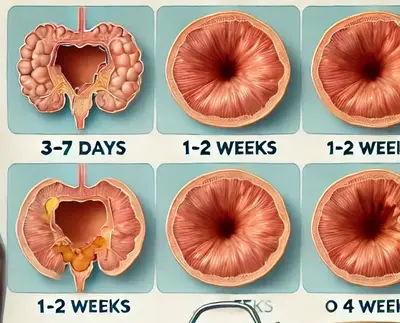Hemorrhoids are a common, yet uncomfortable condition that affects millions of people globally. Whether they are caused by strain during bowel movements, pregnancy, or other factors, the discomfort can be overwhelming. But the question that many people ask is, how long do hemorrhoids last? This article delves into what you can expect in terms of duration and offers practical steps to help relieve the discomfort.
What Are Hemorrhoids?
Hemorrhoids, or piles, are swollen blood vessels located in the rectum and anus. They can either be internal or external, each type causing a variety of symptoms. External hemorrhoids are often more painful due to the skin irritation they cause. While hemorrhoids can be uncomfortable, they’re not life-threatening and usually resolve within a certain period. However, the duration varies depending on several factors.
How Long Do Hemorrhoids Last?
Typically, mild hemorrhoids can clear up in just a few days with home remedies, but more severe cases may persist for weeks or even require medical intervention. There is no one-size-fits-all answer to how long hemorrhoids last, as it depends on the type, severity, and treatment methods.
Internal Hemorrhoids
Internal hemorrhoids, which occur inside the rectum, are often painless but can cause bleeding during bowel movements. These tend to last from a few days to several weeks depending on whether they become prolapsed or thrombosed.
External Hemorrhoids
External hemorrhoids, located around the anus, may last longer due to their exposure and irritation during physical activities such as sitting. If a clot forms (thrombosed hemorrhoid), it may take 2 to 3 weeks for the clot to dissolve.
Thrombosed Hemorrhoids
When external hemorrhoids become thrombosed, they can be particularly painful. A thrombosed hemorrhoid can take longer to heal, sometimes persisting for 3 to 4 weeks without medical intervention. Surgery may be required in severe cases to relieve discomfort.
Factors That Affect the Duration of Hemorrhoids
Several factors can impact the duration of hemorrhoids, including lifestyle habits, the severity of the condition, and treatments undertaken.
- Diet: A diet low in fiber can exacerbate hemorrhoid symptoms and prolong recovery time. Incorporating fiber-rich foods and staying hydrated are key to reducing flare-ups.
- Physical Activity: Prolonged sitting can worsen hemorrhoid symptoms. Taking breaks to walk around can improve blood circulation and speed up recovery.
- Treatment: Over-the-counter creams and medications can provide relief, but proper treatment tailored to the severity of the condition can make a significant difference in healing time.
Real-Life Cases of Hemorrhoid Duration
Case 1: Nathan’s Recovery
Nathan, a 35-year-old office worker, noticed discomfort after long hours of sitting at his desk. After consulting his doctor, he was diagnosed with mild external hemorrhoids. By increasing his fiber intake and using a topical cream, his hemorrhoids cleared up within 7 days.
Case 2: Emma’s Prolonged Symptoms
Emma, a 42-year-old mother of two, experienced internal hemorrhoids after childbirth. Despite trying home remedies, her symptoms persisted for 3 weeks. After seeking medical advice, she underwent a minimally invasive procedure to reduce swelling, and her hemorrhoids healed within another 10 days.
Natural Remedies to Speed Up Hemorrhoid Recovery
In mild cases, home remedies can reduce the duration of hemorrhoids significantly. Here are some effective solutions:
- Warm Sitz Baths: Soaking in a warm bath for 15-20 minutes can help soothe the affected area and reduce swelling.
- Cold Compress: Applying an ice pack can minimize pain and inflammation.
- Topical Creams: Over-the-counter hemorrhoid creams can offer immediate relief from itching and burning.
For more severe cases, a doctor may recommend medical treatments, including rubber band ligation or sclerotherapy.
Table: Duration of Hemorrhoid Types
| Type of Hemorrhoid | Average Duration Without Treatment | With Home Remedies |
|---|---|---|
| Mild Internal Hemorrhoids | 3-7 days | 2-5 days |
| Moderate Internal Hemorrhoids | 1-3 weeks | 1-2 weeks |
| Thrombosed External Hemorrhoids | 2-3 weeks | 1-2 weeks |
| Severe Hemorrhoids (Prolapsed) | 3-4 weeks | Requires medical attention |
When Should You Seek Medical Help?
If hemorrhoids last longer than 3-4 weeks or if they become severely painful, it’s crucial to seek medical advice. Bleeding during bowel movements that doesn’t resolve or increases in severity is another sign to consult a healthcare provider. A doctor may recommend minimally invasive procedures, such as:
- Rubber Band Ligation: Cutting off the blood supply to the hemorrhoid.
- Hemorrhoidectomy: Surgical removal in severe cases.
- Sclerotherapy: Injection therapy to shrink the hemorrhoid.
Diagram: Causes of Hemorrhoid Formation
Managing Hemorrhoid Duration
Hemorrhoids can range from mildly uncomfortable to severely painful, and how long they last largely depends on the treatment you choose and lifestyle adjustments. By addressing the condition early, using home remedies, and seeking medical intervention when necessary, you can greatly reduce the time it takes to recover from hemorrhoids.
Quotes from Experts
- “The majority of hemorrhoids resolve on their own with minimal intervention. However, maintaining a high-fiber diet is key to preventing recurrence.” – Dr. Andrew Williams, Gastroenterologist.
- “Early treatment and proper care are essential in reducing the duration of hemorrhoid symptoms, particularly for thrombosed external hemorrhoids.” – American Society of Colon and Rectal Surgeons.
- “It’s important not to ignore prolonged or severe symptoms. If hemorrhoids do not improve after three weeks, seek medical evaluation.” – Dr. Jennifer Clark, Colorectal Surgeon.









